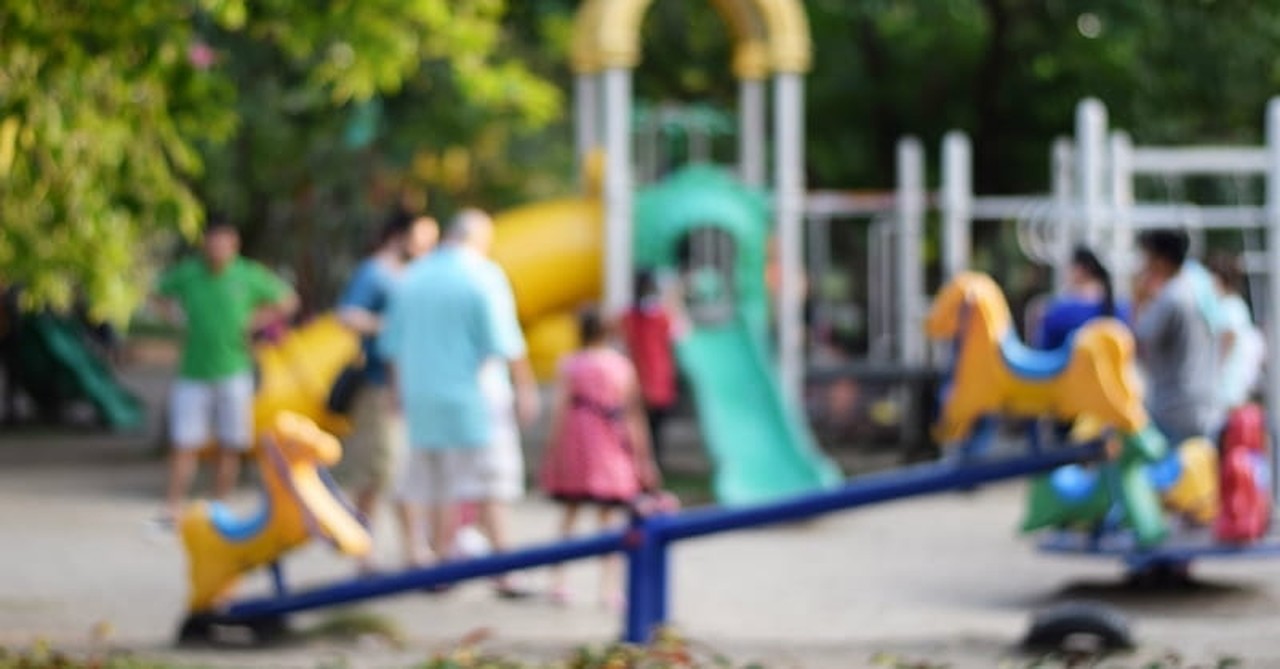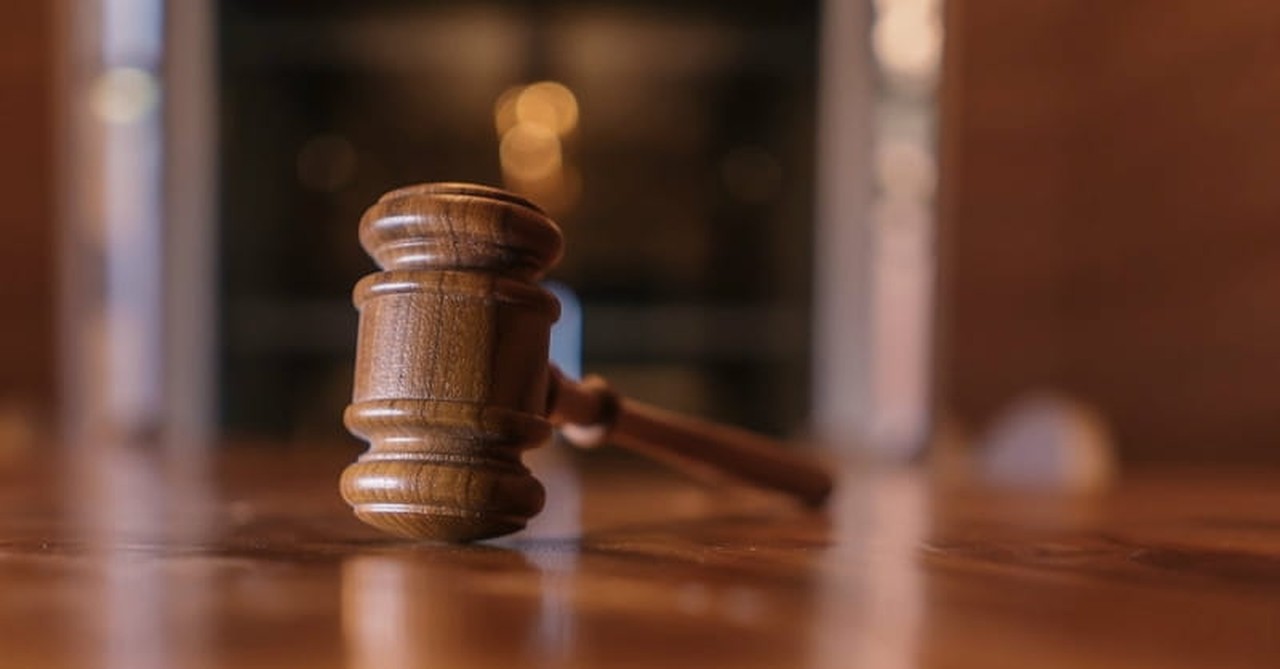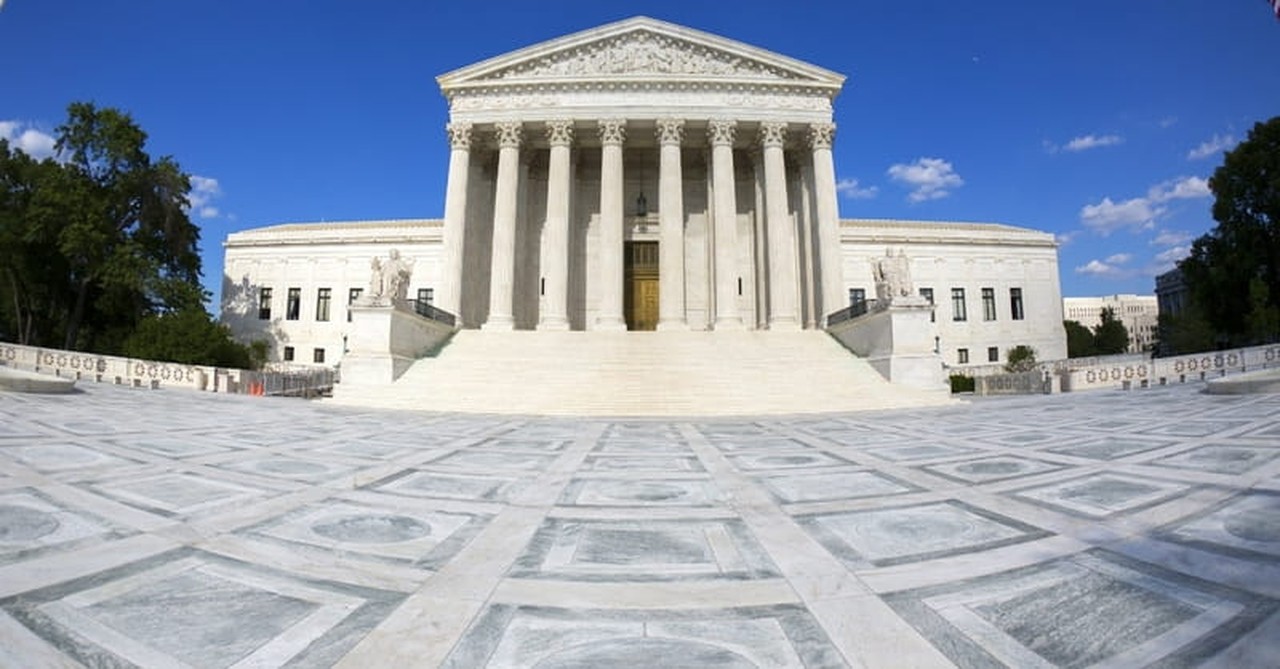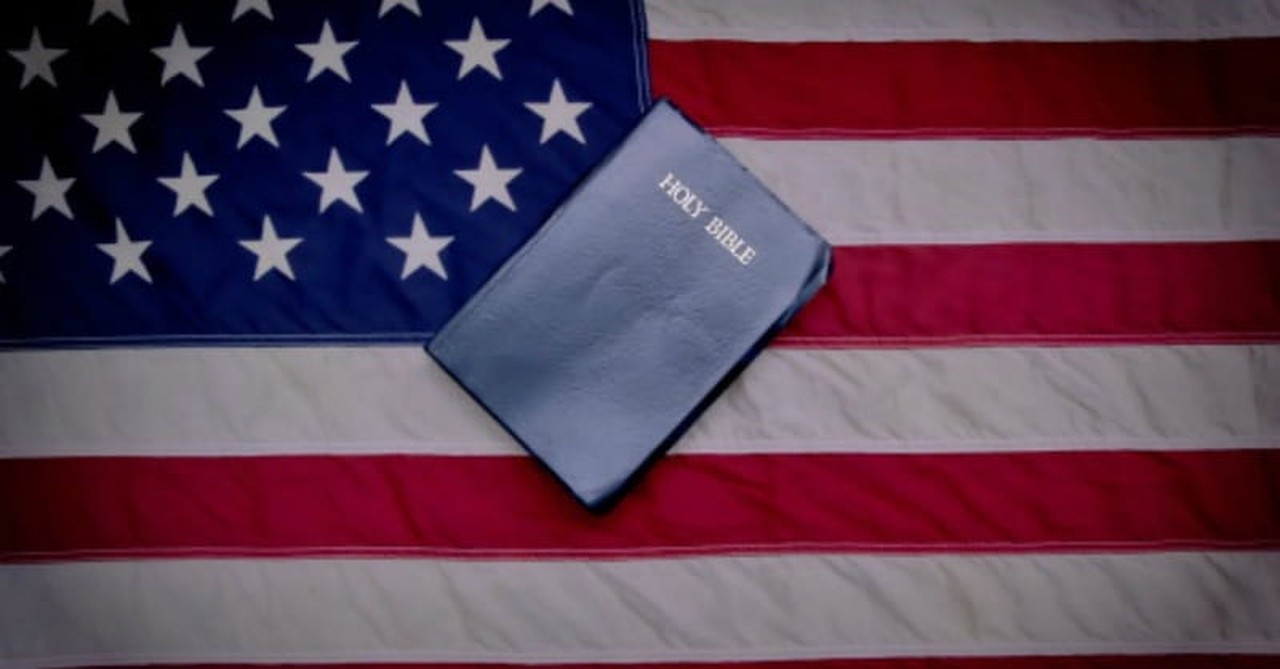
Photo courtesy: Religion News Service
1. What was the case about?

1. What was the case about?
SLIDE 1 OF 7
The case, Trinity Lutheran Church of Columbia v. Comer, involved a religious preschool that was rejected from a state program that provides reimbursement grants to purchase rubberized surface material (i.e., tire scraps) for children’s playgrounds. The preschool was ultimately denied the grant for its playground solely because the playground belongs to a religious organization. The church was defended in the case by Alliance Defending Freedom (ADF).
Trinity Lutheran Church in Columbia, Mo., applied for Missouri’s Scrap Tire Grant Program so that it could provide a safer playground for children who attend its daycare and for neighborhood children who use the playground after hours. The Scrap Tire Grant Program is otherwise neutrally available to a variety of nonprofits and Trinity’s application was ranked fifth out of 44 applications (in total, 14 grants were awarded).
Although the grant was for a secular use (i.e., making a playground safer), the state of Missouri halted the application process and denied Trinity’s attempt to participate in the program solely because Trinity is a church. The state based this exclusion from the program on Article I, § 7, of the Missouri Constitution, which states, “no money shall be taken from the public treasury, directly or indirectly, in aid of any church, sect or denomination of religion.”
The Eighth Circuit affirmed that denial by equating a grant to resurface Trinity’s playground using scrap tire material with funding the devotional training of clergy.
Photo courtesy: Thinkstockphotos.com
2. How did the Court rule?

2. How did the Court rule?
SLIDE 2 OF 7
The Court ruled 7-2 in favor of Trinity Lutheran. Justice Roberts Kennedy, Alito, and Kagan joined the majority opinion in full. Justices Thomas and Gorsuch joined but disagreed with footnote #3 (see more on this below).
Justice Thomas wrote a concurring opinion that was joined by Justice Gorsuch, and Gorsuch wrote a concurring opinion that was joined by Thomas. Justice Bryer also filed a concurring opinion.
Justice Sotomayor issued a dissenting opinion that was joined by Justice Ginsburg.
The Court ruled that the policy violated the rights of Trinity Lutheran under the Free Exercise Clause of the First Amendment by denying the Church an otherwise available public benefit on account of its religious status. The policy, says the majority opinion, expressly discriminates against otherwise eligible recipients by disqualifying them from a public benefit solely because of their religious character.
The ruling notes that the Court has “repeatedly confirmed that denying a generally available benefit solely on account of religious identity imposes a penalty on the free exercise of religion.”
The conclusion is that the “exclusion of Trinity Lutheran from a public benefit for which it is otherwise qualified, solely because it is a church, is odious to our Constitution all the same, and cannot stand.”
Photo courtesy: Thinkstockphotos.com
3. What was “footnote #3”?

3. What was “footnote #3”?
SLIDE 3 OF 7
A footnote (#3) in the majority opinion written by Justice Roberts attempts to limit the scope of the ruling: “This case involves express discrimination based on religious identity with respect to playground resurfacing. We do not address religious uses of funding or other forms of discrimination.”
Justices Roberts, Kennedy, Alito, and Kagan agreed with the footnote. Thomas and Gorsuch agreed with the majority opinion but not with the footnote. In regards to the footnote Gorsuch wrote (and Thomas concurred) that:
“Of course the footnote is entirely correct, but I worry that some might mistakenly read it to suggest that only “playground resurfacing” cases, or only those with some association with children’s safety or health, or perhaps some other social good we find sufficiently worthy, are governed by the legal rules recounted in and faithfully applied by the Court’s opinion. Such a reading would be unreasonable for our cases are “governed by general principles, rather than ad hoc improvisations.” And the general principles here do not permit discrimination against religious exercise—whether on the playground or anywhere else.”
Photo courtesy: Religion News Service
4. What was the reason Justices Sotomayor and Ginsburg dissented?

4. What was the reason Justices Sotomayor and Ginsburg dissented?
SLIDE 4 OF 7
In their dissent, these justices claim that the decision in favor of Trinity Lutheran hinders the “separation of church and state”:
“To hear the Court tell it, this is a simple case about recycling tires to resurface a playground. The stakes are higher. This case is about nothing less than the relationship between religious institutions and the civil government—that is, between church and state. The Court today profoundly changes that relationship by holding, for the first time, that the Constitution requires the government to provide public funds directly to a church. Its decision slights both our precedents and our history, and its reasoning weakens this country’s longstanding commitment to a separation of church and state beneficial to both.”
Photo courtesy: ©Thinkstock/izzetugutmen
5. Why did this case go to the Supreme Court?

5. Why did this case go to the Supreme Court?
SLIDE 5 OF 7
The Supreme Court often hears cases when there is circuit split (i.e., when different federal courts of appeal have reached different outcomes). According to the case filing, three lower courts—two courts of appeals and one state supreme court—interpreted the relevant Supreme Court precedent (Locke v. Davey) as justifying the exclusion of religion from a neutral aid program where no valid Establishment Clause concern exists. In contrast, two courts of appeals remain faithful to Locke and the unique historical concerns on which it relied. In the Locke case, plaintiff Joshua Davey was denied a scholarship using state funds because he intended to use if for a devotional theology degree, which would mean the state was paying to train clergy.
The majority opinion in this case says the Trinity Lutheran is not like the plaintiff in Locke: “Davey was not denied a scholarship because of who he was; he was denied a scholarship because of what he proposed to do. Here there is no question that Trinity Lutheran was denied a grant simply because of what it is—a church.”
Photo courtesy: ©Thinkstock/davidevison
6. Why should the Christian school be eligible for the grant?

6. Why should the Christian school be eligible for the grant?
SLIDE 6 OF 7
According to ADF, the preschool has an “open gate” playground policy. The playground is open to the community and is frequently used by children in the neighborhood after-hours and on the weekends. Because the use is for the “wholly secular benefit of providing safe play areas for kids,” there is no justification for claiming that the use of the recycled tires to aid a religious purpose.
Every person in Missouri is required to pay a fee on their tire purchases, and these fees fund the grant program. Thus religious believers in the state are expected to “put money into the pool, but the playgrounds at their religious organizations can’t benefit from it.”
The government is constitutionally required to treat religious organizations equally, notes ADF. The government isn’t being neutral when it discriminates against religious organizations by treating them less-than-equally.
Photo courtesy: ©Thinkstock/gpointstudio
7. What are the broader implications of this case?

7. What are the broader implications of this case?
SLIDE 7 OF 7
At its core, says ADF, the Trinity Lutheran playground case strikes at the heart of American jurisprudence, asking: What is fair play in a pluralistic society? Can a state prohibit police from responding to a burglary at a Catholic school? Can a city stop the fire department from putting out a fire at a church?
The Court ruled that the government can’t discriminate against religious organizations and exclude them from receiving a generally available public benefit simply because they are religious.
“The Court’s decision is good for kids and good for religious liberty,” says Hannah Smith, senior counsel at Becket, a non-profit religious liberty law firm that filed a friend-of-the-court brief on the school’s behalf. “Trinity Lutheran was simply asking that the government play fair, treat churches equally, and help the preschool make its playground safer for children. Today’s decision does just that.”
“This case will have profound implications for years to come,” says ERLC President Russell Moore. “The Court got this one right, and so we should be thankful to God for that.”
Slideshow adapted with permission from the article "Supreme Court backs church in an important religious liberty case," found on the Ethics & Religious Liberty Commission website.
Photo courtesy: ©Thinkstock/erhlif
Publication date: June 27, 2017
Originally published June 26, 2017.







